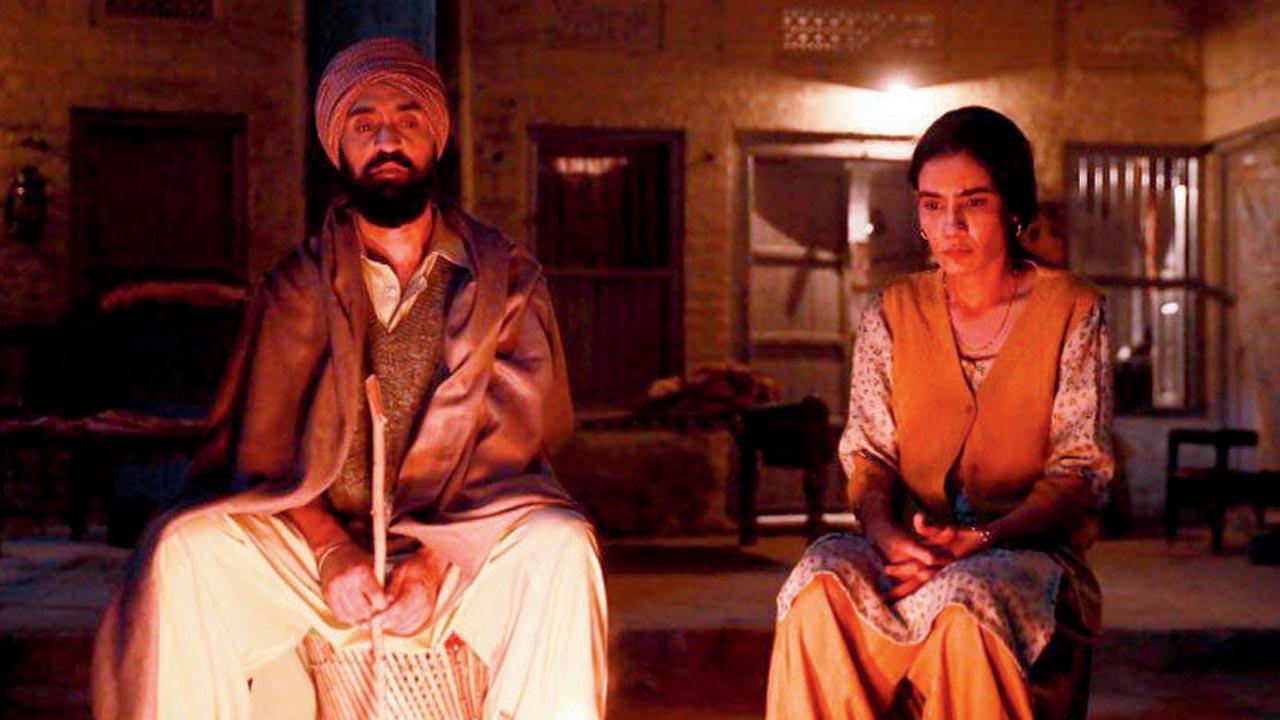
Heightened tensions surround the eagerly anticipated release of Punjab ’95, a significant biopic directed by Honey Trehan and headlined by actors Diljit Dosanjh and Geetika Vidya Ohlyan. The film, which chronicles the life and work of the esteemed human rights advocate Jaswant Singh Khalra, has sparked a storm of reactions following the Central Board of Film Certification’s (CBFC) insistence on approximately 120 alterations. This development has energized the Sikh community, prompting the authoritative Akal Takht to step decisively into the fray.
Regarded as the paramount temporal authority in Sikhism, the Akal Takht has mandated the Shiromani Gurdwara Parbandhak Committee (SGPC) to establish a team of Sikh scholars to thoroughly evaluate Punjab ’95. The purpose is to determine whether the film preserves the sanctity of Khalra’s legacy and aligns with the community’s sentiments. Khalra is renowned for his courageous investigations into the enforced disappearances and extrajudicial killings of numerous Sikh youths during the tumultuous Punjab insurgency spanning from 1984 to 1995.
Criticism of the CBFC’s proposed changes has been swift and vehement, particularly regarding the demand to alter Khalra’s name and identity—an action perceived as an affront to the Sikh heritage and Khalra’s family. This stern reaction has galvanized the SGPC and the Akal Takht to defend the movie’s original portrayal, emphasizing that historical accuracy is paramount in retelling Khalra’s story.
Gurcharan Singh Grewal, the General Secretary of SGPC, conveyed the Khalra family’s apprehension that the CBFC’s draconian edits could undermine the film’s narrative by excising elements verified by both legal and human rights bodies. “Adjusting historical narratives to suit censorship requirements not only diminishes the film’s authenticity but also risks erasing pivotal moments of the past,” Grewal told mid-day. The character’s integrity, Grewal stressed, must remain intact to adequately reflect the chronicled events and Khalra’s work and sacrifice.
Poignantly reaffirming this stance, the Akal Takht’s Jathedar, Giani Raghbir Singh, emphasized the need for a comprehensive review orchestrated by a specially formed panel comprising Sikh scholars, legal experts, and historians.
. This strategic approach aims to ensure the film’s alignment with collective community values and perspectives while safeguarding its dramatic and educational impact. Immediate consultations with Sikh scholars are underway to confirm that Punjab ’95 receives rigorous examination from diverse viewpoints before any final release decisions are made.
The Akal Takht, alongside the SGPC, is diligently preparing for an imminent review. Gurcharan Singh Grewal notes that the assembly of a diverse and knowledgeable committee is in process, with the upcoming screenings slated to occur within the next few weeks. Their ultimate goal is to secure the film’s premiere in its unedited form, thereby upholding corrective historical representation and strengthening Khalra’s revered memory within Sikh culture and beyond.
Parallelly, director Trehan and producer Ronnie Screwvala are navigating their own challenges as they wrestle for certification approval from the CBFC, who have yet to issue a response regarding the film’s current status. As optimism stirs among the production team due to newfound backing from the Akal Takht and the SGPC, discussions are emerging on whether to retain the original cuts, including a pre-discussed list of 22, initially suggested by the CBFC.
While navigating these multifaceted hurdles, Sikh bodies continue to project confidence, ready to resist any external pressure forcing alterations that compromise their storied history. Should Punjab ’95 garner the complete backing from the Sikh community, Trehan and Screwvala have resolved to advocate vigorously for the release of the biopic in its unaltered, authentic form.
This unfolding saga, situated at the intersection of cultural integrity, artistic vision, and political sensitivity, reflects a broader ongoing dialogue in India concerning media representation and the censorship landscape. Punjab ’95 is shaping up to be more than a film; it represents a pivotal moment prompting introspection and dialogue on historical storytelling, collective memory, and cultural preservation.












